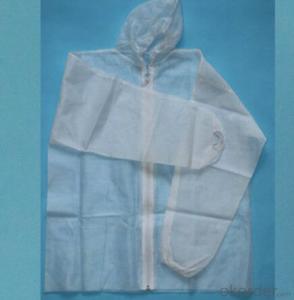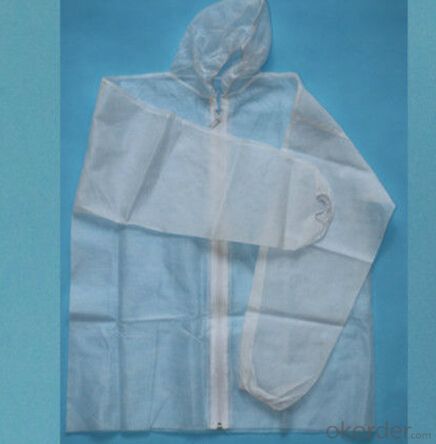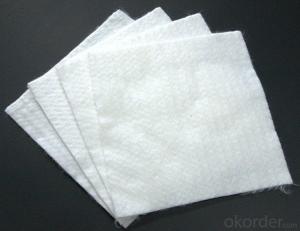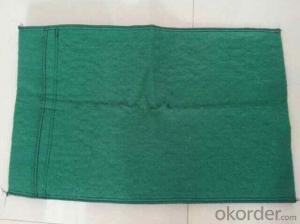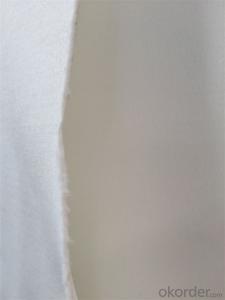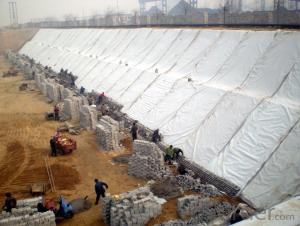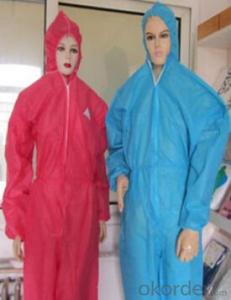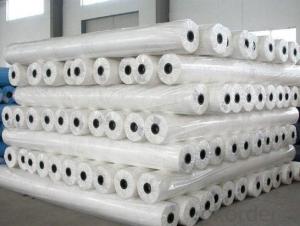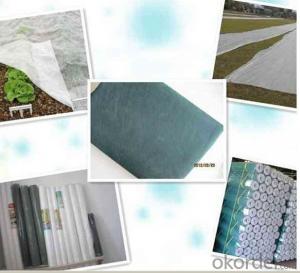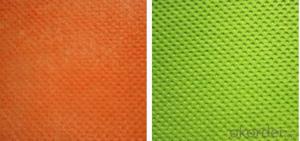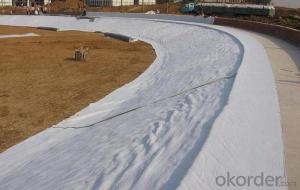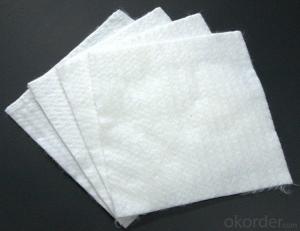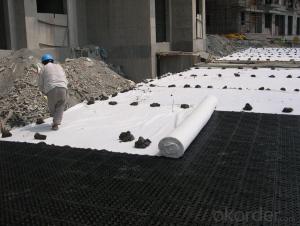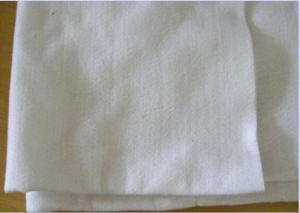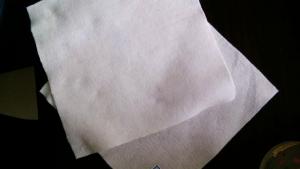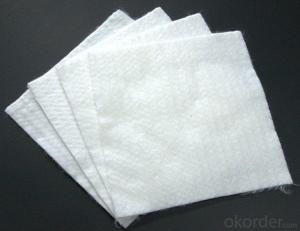Sicam Geotextile PP Spunbonded Nonwoven Fabric Cloth for Hospital and Other Applications
- Loading Port:
- China Main Port
- Payment Terms:
- TT OR LC
- Min Order Qty:
- -
- Supply Capability:
- -
OKorder Service Pledge
OKorder Financial Service
You Might Also Like
PP Spunbonded Nonwoven Fabric cloth protect from desease
is used to protect the t can protect the doctors or workers safely and protect them from desease.
Specification of PP Spunbonded Nonwoven Fabric cloth protect from desease:
Feature Waterproof, Mothproof, Eco-friendly, Non-toxic, Breathable, Anti-Bacteria
Width | 0.4--3.2M |
Color | Any color available |
Roll Length | According to your requirement |
Technics | Nonwoven |
Nonwoven Technics | Spunbonded |
Pattern | Yarn Dyed |
Weight | 9-200GSM |
Style | Plain |
Feature | Waterproof,Mothproof,Eco-friendly,Non-toxic,Breathable,Anti-Bacteria |
Certification | ISO9001 |
Usage | Agriculture,Indrustry,Construction,Packaging,Home-textitle, etc |
MOQ | 1Ton/1000KG |
Payment Terms | T/T or L/C |
Delivery Time | Within 7-15 days |
Packaging Detail | Plastic film in roll |
Place of Origin | Shandong,China |
Loading of Port | Qingdao |
Sample | Free samples are available |
Packing of PP Spunbonded Nonwoven Fabric cloth protect from desease:
Each roll is wrapped in a plastic bag with label specification with paper tube inside .
Feature Waterproof, Mothproof, Eco-friendly, Non-toxic, Breathable, Anti-Bacteria
- Q: How do geotextiles help with drainage?
- Geotextiles help with drainage by allowing water to flow through them while preventing soil particles from clogging the system. They act as a filter, preventing the fine soil particles from entering the drainage system and causing blockages, thus improving the overall effectiveness and longevity of the drainage system.
- Q: How do geotextiles help with soil stabilization in steep slopes?
- Geotextiles help with soil stabilization in steep slopes by providing a protective barrier that prevents erosion and helps to retain the soil in place. They act as a reinforcement layer, distributing the load across a wider area, reducing the likelihood of slope failure. Additionally, geotextiles promote water drainage, reducing the potential for saturation and increasing the slope's stability.
- Q: Can geotextiles be used in the construction of green roofs?
- Yes, geotextiles can be used in the construction of green roofs. Geotextiles are often used as a layer in green roof systems to provide drainage and filtration, helping to manage water flow and prevent erosion. They can also help to separate different layers of the green roof system and provide stability to the growing medium.
- Q: What are the different geotextile installation techniques for erosion control blankets?
- There are several geotextile installation techniques for erosion control blankets, including trench and backfill, stake and tension, and anchor and pin. Trench and backfill involves digging a trench along the slope, placing the erosion control blanket in the trench, and then backfilling it with soil. Stake and tension involves driving stakes into the ground at regular intervals and then securing the erosion control blanket to the stakes with tensioning devices. Anchor and pin involves using anchors or pins to secure the erosion control blanket directly to the ground. The specific technique used depends on the slope conditions and project requirements.
- Q: Can geotextiles be used for reinforcement in landfills?
- Yes, geotextiles can be used for reinforcement in landfills. Geotextiles are commonly used as a geosynthetic material in landfill construction and operation. They are placed within the landfill to improve stability, prevent soil erosion, and enhance the overall strength of the landfill structure. Additionally, geotextiles help to control water flow and filter out contaminants, providing an effective solution for reinforcement in landfills.
- Q: What is the size of the filament geotextile? What are the characteristics of the application?
- What is the size of the filament geotextile? What are the characteristics of the application?
- Q: What are the considerations for geotextile selection in shoreline erosion control?
- When selecting geotextiles for shoreline erosion control, several considerations need to be taken into account. These include the strength and durability of the geotextile, its resistance to UV degradation and chemical exposure, its permeability to allow for proper drainage, and its ability to retain sediment while still allowing for plant growth. Additionally, factors such as cost-effectiveness, installation requirements, and the specific environmental conditions of the shoreline should also be considered in the selection process.
- Q: What are the advantages of using geotextiles in agriculture?
- Geotextiles offer several advantages in agriculture. Firstly, they help in soil reinforcement and stabilization, preventing erosion and soil loss. Secondly, they can act as a barrier, controlling the movement of water, nutrients, and chemicals, thereby enhancing soil fertility and reducing the risk of groundwater contamination. Additionally, geotextiles promote better root development and plant growth by providing a stable and well-drained environment. Lastly, they contribute to weed control, reducing the need for herbicides and manual labor. Overall, geotextiles serve as an effective and sustainable solution in agriculture, improving soil health, crop yield, and environmental sustainability.
- Q: Precautions for Polyester Filament Geotextiles
- Geotextile storage to meet the following requirements: the Treasury clean no debris, no chemical corrosion; not sun, tarnished; not weight, not scratch, to prevent violent collision; away from the hot source; dry and cool warehouse; There is a need for fire tools, fire hydrants, fire extinguishers and so on. Geotextile transport, loading and unloading requirements: can not be mixed with sharp items; hoisting with flexible rope; can not use steel wire rope directly hoisting; not with sticks, iron bars and other hardware auxiliary top loading; Stress dispersion measures, to avoid tightly tightened with a rope.
- Q: Can geotexters cover grass seeds?
- Geotextile is anti-puncture which grass can not grow out, you can use the vegetation bag ah
Send your message to us
Sicam Geotextile PP Spunbonded Nonwoven Fabric Cloth for Hospital and Other Applications
- Loading Port:
- China Main Port
- Payment Terms:
- TT OR LC
- Min Order Qty:
- -
- Supply Capability:
- -
OKorder Service Pledge
OKorder Financial Service
Similar products
Hot products
Hot Searches
Related keywords
